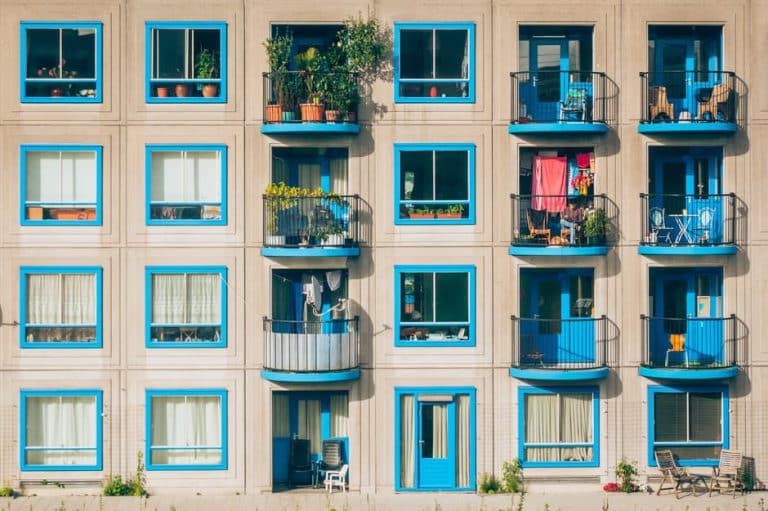It’s finally happened. While you were traipsing to all those open houses, negotiating with sellers, and rounding up a mountain of financial documentation, you thought it might never end. But it did end: a seller agreed to your offer, and the lender gave the go-ahead on your mortgage. You signed all the paperwork at closing. Someone handed you keys to your new home.
Congratulations. You are now officially a homeowner.
So now that you’ve finally got the mortgage and closed on your new home, what should you do next?
1. Put Those Closing Papers Somewhere Safe

That giant stack of papers you received at closing? You’re going to want to hold onto every single sheet of paper. Those documents are proof of the most expensive thing you’ve probably ever purchased. Find a safe place to store these documents. Remember, you’re about to move, and things tend to get lost in moves. Make a plan for where you’re going to keep those documents while you’re getting settled into your new home. And think about where those documents will live once you’ve settled in.
Where exactly you’d like to keep them is up to you. You might consider getting a fireproof safe to keep in your home, or taking out a safe deposit box at a bank. Make copies of everything. It’s not a terrible idea to leave one complete copy of all of your documents with your attorney.
At the minimum, make sure you put your closing documents someplace where you’ll remember where to find them in the future. You’ll probably need the closing documents to help establish deductions when you do your taxes next spring. And you’ll definitely need these documents in the future when you sell the place. (Even if you never sell the place, someone else will need those documents to settle your estate.)
2. Get Your Home Move-In Ready

Those new house keys you picked up at closing? Think of them as a souvenir. There’s no way to know just how many people have a copy of keys to your new home. Save yourself the trouble of worrying about former contractors, housekeepers, dog-walkers, or jilted exes. Call a locksmith and get new locks for all of your home’s doors.
You’ll want to call and set up your utilities before moving day, or before starting any projects you’re planning to complete before moving day. Keep in mind, some things are going to be easier to handle while your home is empty. Painting the walls, installing new carpet, or buffing wood floors is going to be a lot easier to do before you move in. Make appointments with any professionals you’ll be hiring as early as possible. That way, work can be completed before you move your furniture and your family into your new digs.
Also, chances are good that the seller has left the place sort of clean, but not I-want-the-kids-to-eat-off-that-kitchen-counter clean. And it may have been awhile since anyone’s lived in what is now your home. Hire a cleaning crew or set aside some time to clean your new home yourself. You’ll be happier moving into a home that’s been scrubbed and scoured before you put your dishes in the cabinets or your toothbrush on the bathroom counter.
3. Prioritize Your To-Do List

The house you just bought probably isn’t totally perfect. But you’ve also just taken a big bite out of your savings to buy the place. It’s fun to imagine turning your new house into the perfect home, but think carefully about your priorities before embarking on any big home improvement projects.
The house has no kitchen appliances? You’ll probably want to remedy that before you move in. Ugly tile in the downstairs bathroom? Consider whether that project can wait a year or two.
What really needs to be done before you can move in and what can wait depends on you and your budget. But as a homeowner just starting out, it’s worth actively thinking about what’s really important. Not everything needs to be done all at once.
The big secret for homeowners? The home improvement to-do list is never really complete.
So go ahead and enjoy your new-found freedom to do whatever you want to your home. That freedom is surely part of why you purchased a home in the first place. But recognize that renovation projects can be stressful. And expensive. Remodeling frequently takes longer to complete than you initially estimate. You don’t want to tie up all of your money in fun-but-not-strictly-necessary projects. Take your time before committing to big projects.
4. Shore Up Your Home Maintenance and Emergency Fund

If something broke when you were renting, you called your landlord. But as a homeowner, you no longer have that option. The roof springs a leak, the water heater dies, the basement floods, or the neighbor kid breaks a window? You’re going to need to handle it yourself.
Each month, set aside some money for your home maintenance fund. Make sure you are building up enough money to handle a major home-repair emergency. Hopefully, the home inspection you did before purchasing your home gave you a clear picture of any major areas of concern. If you’re lucky, there shouldn’t be any major surprises, at least for the first few years you own your home. But if you’re not lucky, or the building inspector missed something major? Then it’s going to be on you to handle the situation.
5. Bone Up on Your DIY Skills

Maybe you’re already a skilled carpenter or master plumber. If that’s the case, great. But even the handiest handy folks among us aren’t experts at everything.
Skilled homeowners can save themselves time, trouble, and money by handling home repairs themselves, but only if they’re able to do a good job. Think about your limits and skills. Be realistic about what projects you can handle on your own, and what projects are best left to the professionals.
If you’re interested in building up your DIY skills, there are places to learn. Many hardware stores employ knowledgeable staff who can help answer basic questions; some hardware stores host instructional workshops. There may be community colleges or trade schools offering courses for a nominal fee. And of course, there are books and YouTube tutorials for almost any home repair under the sun. If you’ve got the time, volunteering for a home-building program like Habitat for Humanity can be a good way to pick up some useful skills.
Just remember to take new projects slowly, and try not to bite off more than you can chew. Hiring a contractor to fix a botched DIY job is almost always going to be more expensive than having hired a professional to tackle the project in the first place.






